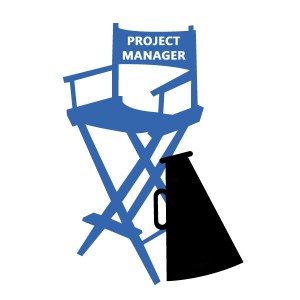Moving onward (although probably not upward) from the unnecessarily public spat between The State/President Poroshenko and oligarch Igor Kolomoiski, there would appear to be some resulting shifting of the political and oligarchical sands to mull over – and ponder looking to the immediate future.
That said, Mr Kolomoiski forced the issue with the State/President, and had to be confronted. A public face-saving compromise has now been announced by Prime Minister Yatseniuk, although privately undoubtedly there will be feelings that scores remain to be settled. (Notably no criminal proceedings thus far.)
As written last week, there were certain to be ripples and sands-a-shifting as a result. Mr Kolomoiski is hardly politically sidelined nor crippled by his resignation as Dnepropetrovsk Governor.
“Indeed, now that he once again holds no political office, and therefore once more has no public political face to present, he may well become far more mischievous than when he was holding office. The number of “owned” Rada MPs, the occasional Mayor, and deputies in numerous local administrations from Dnepropetrovsk to Odessa, insure that his ability to politically influence from behind the curtain continues. This method has traditionally always been Mr Kolomoiski’s preferred modus operandi, having previously shunned public office.
There is also the longstanding rumour within the Rada, that both Messrs Kolomoiski and Lyvochkin/Firtash have decided to “reset” the Rada in 2016 – between them “owning” enough MPs to make the current Rada almost unworkable.”
What has become immediately noticeable since leaving the office of Dnepropetrovsk Governor, is that the public animosity between Mr Kolomoiski – or more precisely Mr Kolomoiski’s “people” within the Rada, together with his TV channels, particularly the popular pro-Ukrainian 1+1, on the one hand – and Oleh Lyashko, the walking ego/populist rent-a-mouth leader of The Radical Party on the other, have almost immediately subdued after months of public, and very pointed, sniping.
Only the most naive of on-lookers would believe that this is in any way due to Mr Lyashko considering Mr Kolomoiski has either suffered, or indeed has been, defeated – thus there no longer being a populist battle to be fought.
Being quite blunt, albeit that Mr Lyashko (and his party) were heavily financed by Messrs Lyvochkin/Firtash during the last Rada elections, Mr Lyashko’s voter base is very much the more hard-core “Ukrainian patriot”, bordering upon “Ukrainian nationalist”, if not both, in the absence of Svoboda.
As such, Mr Lyashko (and the Radical Party), despite having access to the Inter TV channel owned by his party financiers (and ex-Regionaires) Messrs Lyvochkin/Firtash, this channel is not especially popular with his core voter base. Mr Lyashko’s voter base is much more aligned toward, and indeed inclined to watch, Mr Kolomoiski’s 1+1 TV Chanel.
As has been written many times these past few months, the oligarchy, and in particular Messrs Firtash/Lyvochkin and Kolomoiski, all appear to be ready to “reset” the Rada in 2016. It is indeed the worst kept secret within the halls of the Rada.
That being the case, and Mr Lyashko’s ego is certainly not being satisfied as a mere “party leader” within the Rada, in anticipation of 2016 elections Mr Lyashko needs to gain good access to the viewers of Mr Kolomoiski’s 1+1, and if possible, Mr Kolomoiski’s financial and/or inferred backing amongst the pro-Ukrainian crowd – a crowd that automatically shuns Messrs Lyvoshkin and Firtash.
Mr Kolmoiski, by allowing such access – or at least greater access – gains the walking ego and parliamentary rent-a-mouth to take on President Poroshenko’s Solidarity party in the Rada, skewering every misstep, mis-speak and unpopular act upon the populist tongue of Mr Lyashko. Whilst doing so, Mr Kolomoiski can also mitigate the damage to his investment in Prime Minister Yatseniuk’s People’s Front party. Revenge via a populist proxy presents itself.
Furthermore, as the initial rift between Mr Kolomoiski and Oleh Lyashko related to Mr Lyashko attempting to hijack the populism attached to the Kolomoiski financed volunteer battalions – those battalions now either already integrated into the Army or National Guard, or in the process of negotiating their entry – that particular populist wave is not really there to be ridden as it once was.
Thus, a temporary and partial truce to engineer early Rada elections between Mr Kolomoiski and fellow oligarch Mr Firtash (plus sidekick Mr Lyvochkin), presents President Poroshenko with a far more difficult task of managing their common political oligarchical interests (survival through direct political influence from behind the curtain) when they are temporarily sharing the same proxy populist attack-dog/advocate/anti-Solidarity Party being broadcast across the biggest TV channels in Ukraine (with the exception of the President’s own Channel 5) with increasing frequency.
Naturally, those oligarchical common interests are limited, and will only extend for so long and only to a certain degree.
Whether Oleh Lyashko (and Party) would remain on the Firtash/Lyvochkin payroll, or swap to the Kolomoiski payroll after any elections is perhaps far too soon to call. Undoubtedly Mr Lyashko’s reach out to Mr Kolomoiski has occurred with the full knowledge of his current Lyvochkin/Firtash paymasters. Would Mr Kolomoiski finance him too? Why not, in his time he has financed Ms Tymoshenko (and Batkivshchyna), Oleh Tyahnybok (and Svoboda), Arseny Yatseniuk (and the People’s Front) – so why not Oleh Lyashko (and the Radical Party)?
Whatever the case, it would seem reasonable to anticipate that the “Lyashko rent-a-mouth” is about to be unleashed on the President and his Solidarity Party with increasing venom and frequency – with the blessing, encouragement, and the particularly influential media resources of both Mr Firtash’s Inter and Mr Kolomoiski’s 1+1 over the coming months.



